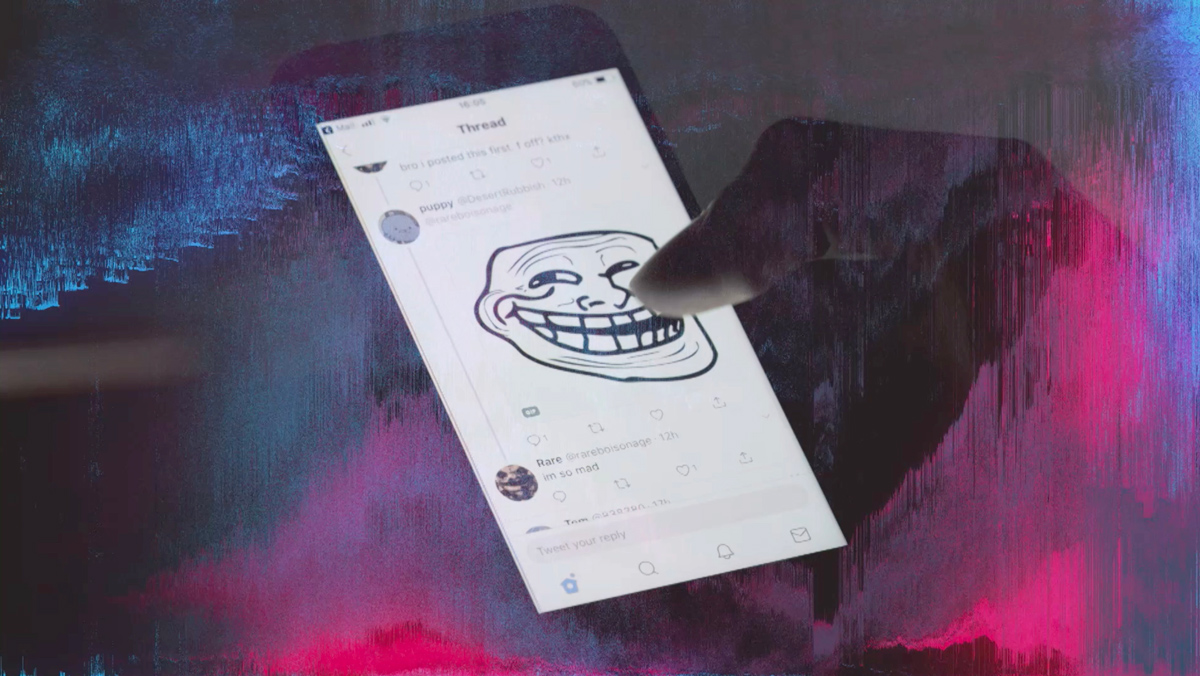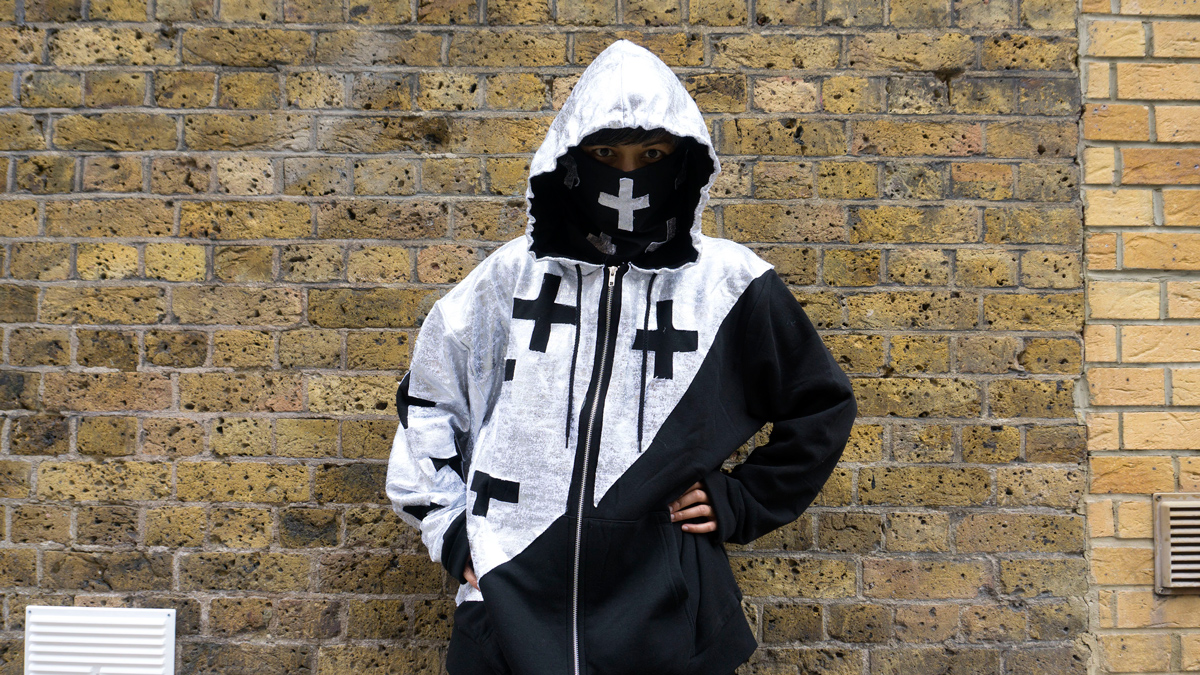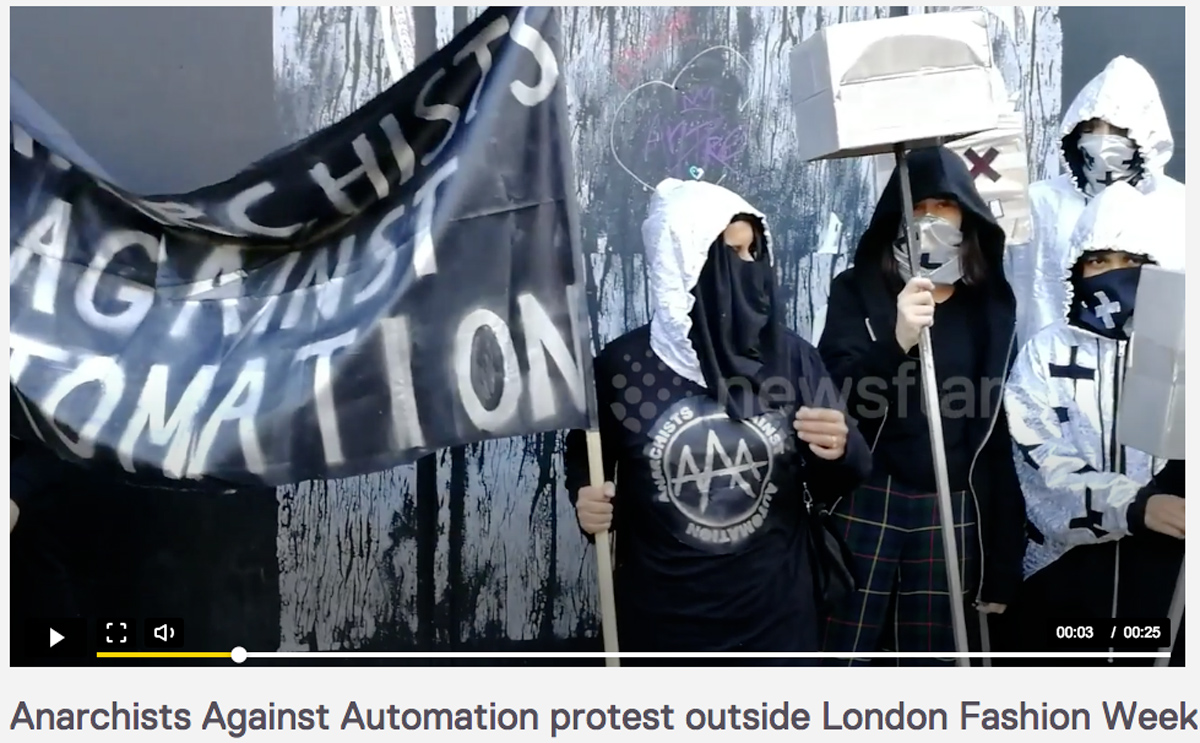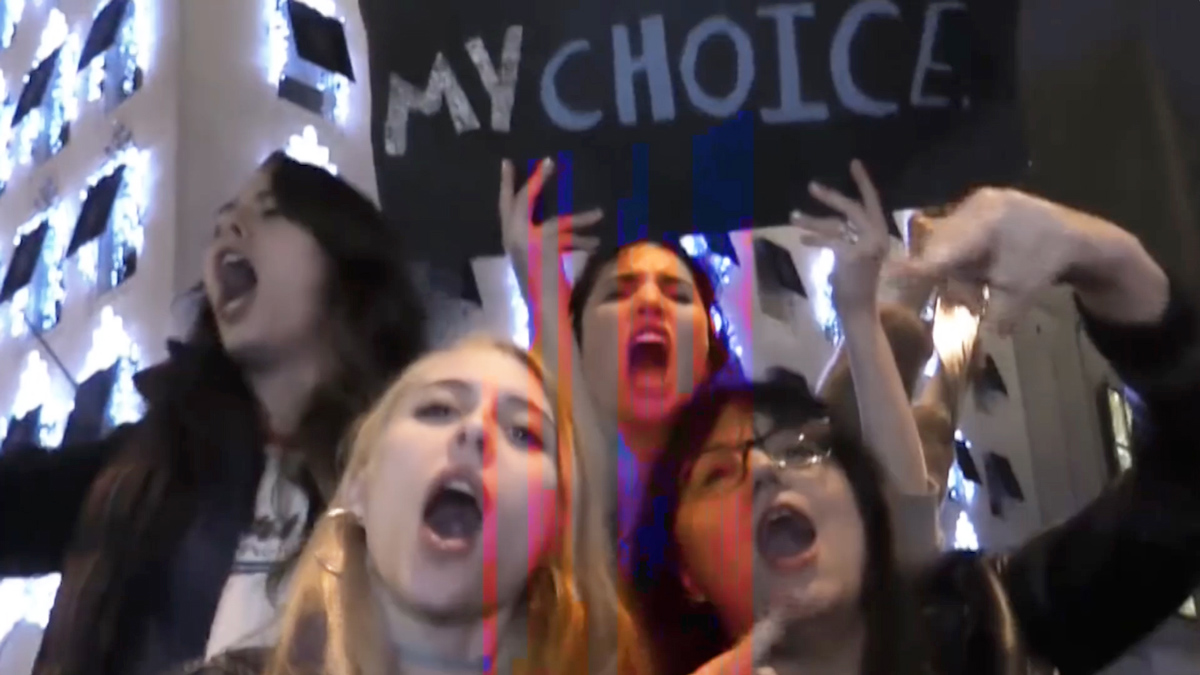Projects
Trigger Warning
Is it possible to proactively and aggressively pursue peace?
This counterintuitive question provoked the landmark show ‘Waging Peace’ at the new Museum of Discovery, Adelaide. Our short fiction ‘Trigger Warning’ is part of the exhibition until April 2019. Watch the full film below.

‘THE WAR’
Peace is precarious. Today, ideological conflict is rife across countless digital battlegrounds, as the polarization of belief is aggravated by algorithms.
Deep ideological fissures are beginning to divide society, which has been invaded by the fractured narratives of post-truth. People form beliefs based on feelings rather than facts. Reality is oversimplified, then weaponized by master manipulators of information warfare. An ancient and subversive form of propaganda has found a contemporary audience. Everyone believes their own brand of truth.
In world-building we wondered: would peace be possible if this conflict intensifies?
THE FILM
TRIGGER WARNING from Superflux on Vimeo.
‘Trigger Warning’ is a fast paced journey through a city of memes. An urban hinterland of embodied ideas and warring ideologies. Switching between various first-person perspectives, the story embodies the current culture clashes bubbling away beneath the surface of the city. The algorithmically mediated networks which amplify opinions, manipulate biases and shape beliefs have caused widespread civic unrest. People emerge from behind memes and screens to bear arms for their beliefs. Allegiances continue to fracture and fragment, until individual emotions and opinions reign supreme. Eventually, any sense of certainty evaporates.
What lies on the horizon if these polarised realities melted away? What might peace be like?

OUR PROCESS
Over the summer of 2018, this project saw us merely scratch the surface of the war on truth that is the present era of misinformation, deep fake videos, Cambridge Analytica and Russian Troll farms. We tried to examine these converging phenomenon from a meta-level to highlight the absurdity of the entire culture.

This was really challenging as everyone already has their own ingrained viewpoints, and our team certainly weren’t politically agnostic. We looked inwards at ourselves. Then, we looked around us at the conflict we felt and currently experience. How exactly would this war on (multiple ideas of) truth, this war on (multiple ideas of) reality play out?
In an interview in 1999, David Bowie predicted the internet would result in the widespread realisation that we are living in total fragmentation of belief. He eerily forecast that reality pluralism would replace the known truths and known lies of the 20th century.
As we researched the story we trawled through countless digital self-presentations, affirmations and proclamations, the absolutism necessitated by online environments was inescapable. From our viewpoint, it appeared that the pressure to reduce our complex and changing selves into 2D identities is, at least in part, responsible for splintering any sense of shared reality.

CONTEXT
In everyday life, many of our choices and beliefs occur as a result of automatic affective impressions and emotions over which we have little control. As trust in experts, institutions and the media gradually erodes, favouring feelings over facts is becoming increasingly commonplace. Internet connected digital media technologies have indeed begun to highlight that we are living in total fragmentation of belief.

Discovering the profound diversity of perspectives in the world is an astonishing and eye-opening upside of the internet. Unfortunately, with this acknowledgement of difference also come increased opportunities for ‘othering’ (or “us and them” thinking). ‘Othering’ is an unfortunate evolutionary hangover in human psychology involving a biased propensity to homogenise, oversimplify and distrust those outside our perceived in-group. As established and emerging social groups splinter and gather together in online spaces, ‘othering’ proliferates. With it festers a lack of tolerance and oversimplification of the individuals who don’t adhere to the expectations of that social group.
Another common feature of group thinking and behaviour is the law of group polarization, which influences a natural sway towards extreme viewpoints in group discussions. Social scientist Cass Sunstein has studied how group members commonly become reluctant to share information which conflicts with the emerging consensus. In doing this, group members omit important facts which would introduce complexity, complications and debate within the group. Eventually, having only discussed biased information, groups lean towards a more extreme and polarized position than they started out with.

Filter bubbles further aggravate group polarization by algorithmically funnelling us into spaces where it is unlikely we will encounter contradictory information. Extremism quickly flourishes. Add to that the fiendish speed of the attention economy and the dopamine hit of receiving likes for content aligned with your in-group’s beliefs and, et voila!

For centuries, dispositional distrust of ‘others’ outside of the in-group has been strategically exploited by master strategists of information warfare. Cunning propagandists have always understood the power of introducing a physical or ideological threat to a social group. The battleground of the 21st century is virtual, but the tactics of mass manipulation remain the same. Subversive political players like Cambridge Analytica and Russian Troll farms spread misinformation in spaces where people are algorithmically isolated from contradictory information and reasoned debate. Their intention is to cultivate a sense of belonging to a particular social group while positioning ‘outsiders’ as a threat.
As digital communication technologies have been increasingly adopted, the phenomenon of context collapse has had further implications for how people interact online. This feature of online environments is the phenomenon whereby personal identity is condensed, or collapsed, to navigate an imagined audience in digital spaces. The term ‘context collapse’ was coined in 2011 by media theorist Alice Marwick and Principal Researcher at Microsoft Research, Danah Boyd. Their findings showed that social media technologies make it difficult for people to handle their own multiplicity and the multiplicity of their potential audience.

Not only do people try to squash their complex selves into categories with clear signifiers for obvious social, cultural and political ideologies, they also fail to acknowledge the diversity and amorphous natures of different people and different individuals over time, too. Most of us are guilty of quickly ‘othering’ those we encounter online if they do not adhere to the clearly defined belief systems we find acceptable. We categorise them as not being like ‘us’. This is partly about self-presentation, but is also concerned with certain cognitive biases which appear to become exaggerated in digital interactions. Essentially, the law of group polarization is able to escalate even faster when it clashes with the reduction of self, associated with context collapse.
We are all also guilty of seeking out those who align with our perspective, existing ideologies and thinking, to subconsciously identify who we want to be associated with. This ‘us’ and ‘them’ attitude extends to anyone who doesn’t share similar views as our own. And, the phenomenon of ‘othering’ is becoming increasingly hostile and fragmented. Part of this is driven by our own behaviour, but software shaping and controlling the platforms on which we interact are also responsible for further shaping what and who we see. Perhaps a little more meaningful dialogue, listening, and questioning our own biases can act as the antidote to the escalating conflict augmented by reinforcing algorithms.
THE SCREENINGS
The film and installation are being exhibited since November 2018 at the Museum of Discovery in Adelaide, Australia to some great feedback, and discussion. The primary audience for the museum is 15-25 year olds and here’s just an glimpse of some reactions:
“Showed how messed up the world is”
“No one is listening to each other”
“It’s important to let go of offence”
“How do you get through life without a biased opinion when there are so many different agendas?”
